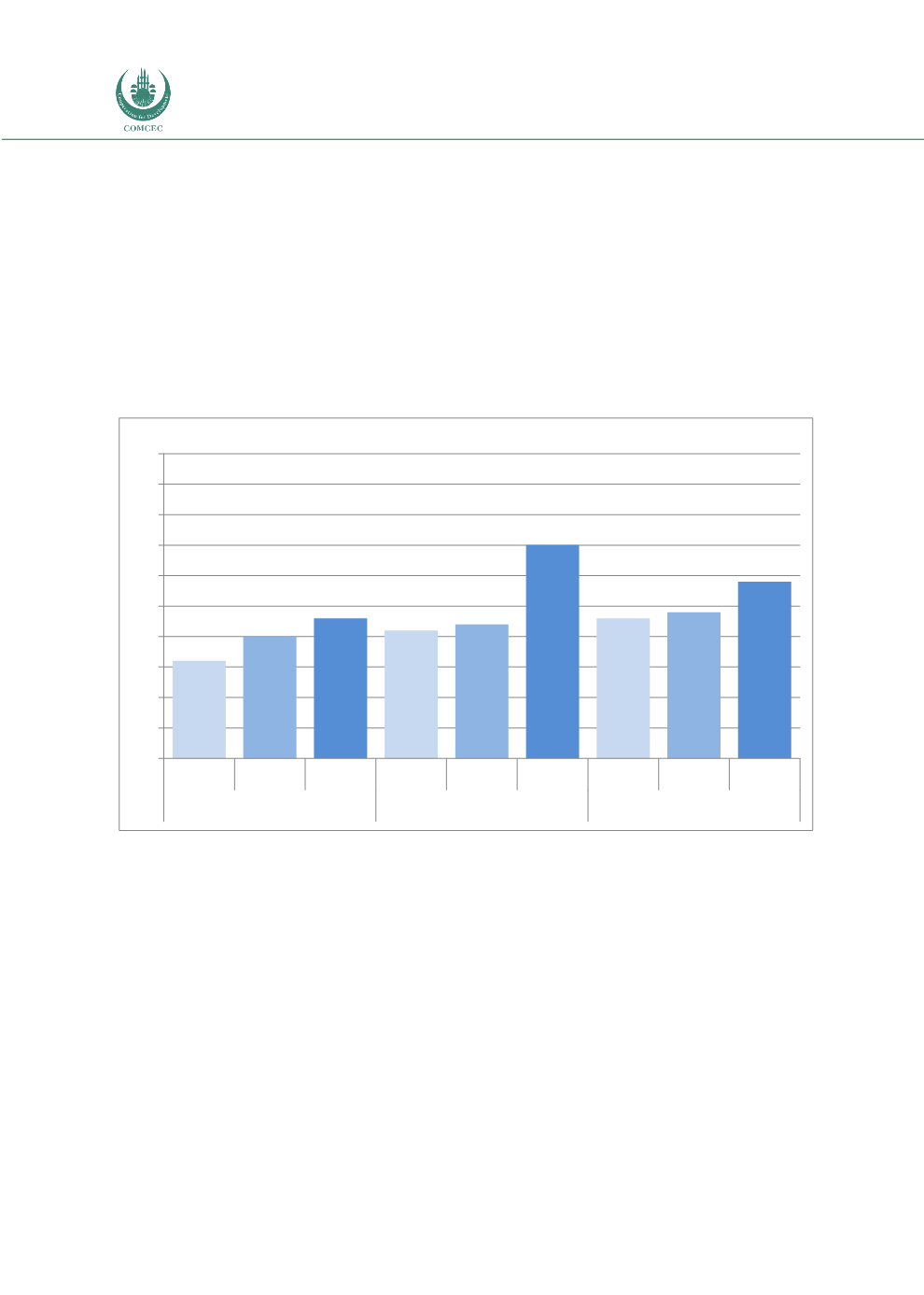

COMCEC Agriculture Outlook 2018
36
Figure 29 illustrates that average protein supply per caput in a day in the OIC member countries
reached to 69 gr/caput in 2014-2016; while it was 61 gr/caput at the beginning of 1990s.
Compared to the world, it was 12.5 percent lower than world average in the period of 2014-
2016.
At the sub-regional level, Arab Group had the highest average daily protein supply per person
with 75 gr in 2014-2016. Arab Group was followed by Asian Group and African Group with 69
gr and 63 gr respectively. Protein supply is sufficient in very few countries such as Kuwait,
Maldives, and Turkey. In most of the African Group countries, only half of required amount of
protein has been supplied (Figure 30).
Figure 30. Average Protein Supply in the OIC Sub-Regions
Source: Annex 37
Furthermore, number of people at risk of undernourishment is a broad indicator. According to
FAO definition, undernourishment means that a person is not able to acquire enough food to
meet the daily minimum dietary energy requirements, over a period of one year. The number of
undernourished people in the OIC is calculated by applying the estimated prevalence of
undernourishment to total population.
Figure 31 displays that as of 2014-2016, 168.6 million people are expected to be
undernourished in the OIC member countries which accounts for 21.2 percent of
undernourished people in the World. In the last 25 years, while the number of undernourished
people in the World has fallen gradually, it remained almost the same in the OIC member
countries. Therefore, the share of OIC in undernourished people of the World has risen from
16.6 percent in 1990-1992 to 21.2 percent 2014-2016. This can be explained by the impact of
the surge in food insecurity, particularly after the food crisis in 2006-2008 that brought forth
56
60
63
61
62
75
63
64
69
40
45
50
55
60
65
70
75
80
85
90
1999-2001
2014-2016
2004-2006
1999-2001
2014-2016
African Group
Arab Group
Asian Group
gr/caput/day
















